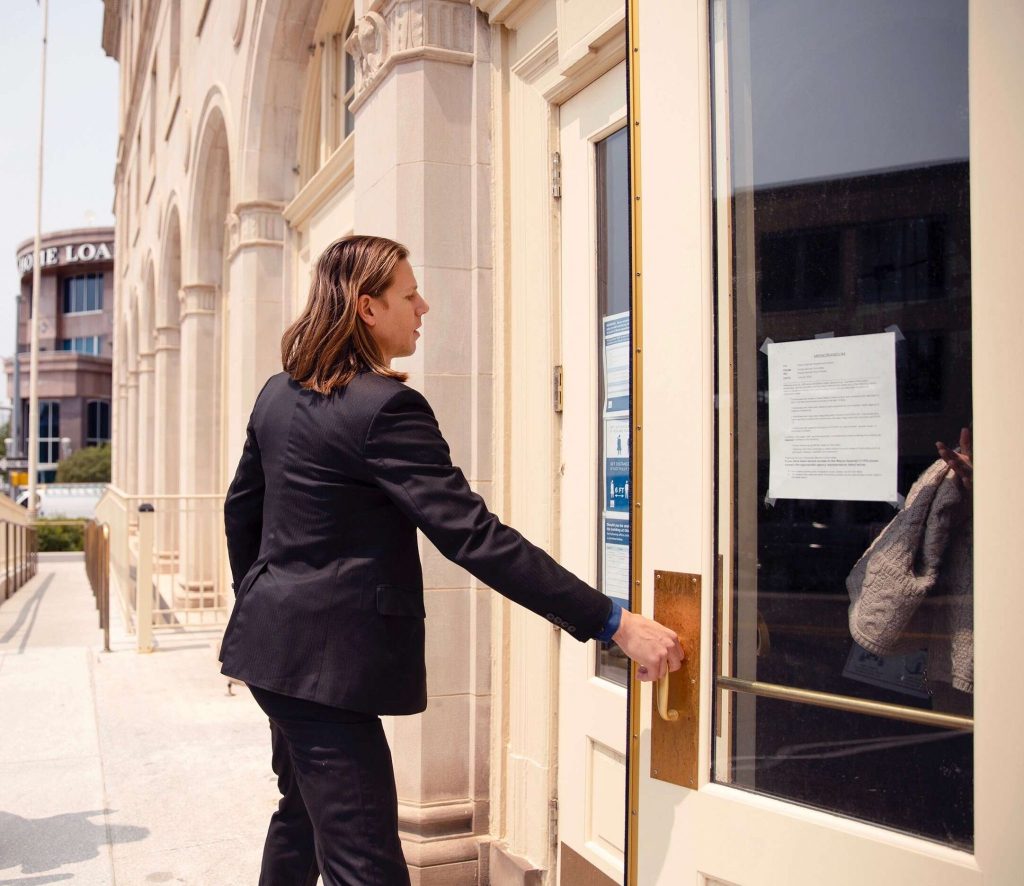Influencer behind social media stunt at Keystone calls case ‘outlandish’ after appeals court throws out part of conviction
Appeals court overturns charge related to unauthorized work activity on national forest land, but says trespassing-related charge stands

McKenzie Lange/Grand Junction Sentinel archive
A social media content creator applauded a ruling Tuesday that overturned a criminal charge against him, saying the case was based on outlandish claims that would have set a dangerous precedent.
David Lesh, owner of outerwear company Virtika, in 2022, was convicted on two charges in 2022 after he made a post on his personal account that depicted an individual snowmobiling over a jump in a terrain park at Keystone Resort when the property was closed. The U.S. government charged him with trespassing and conducting unauthorized work activity on national forest land.
A district court concluded that Lesh was “taking photographs to promote a clothing line, which is unquestionably work activity,” according to court documents. But Lesh challenged the rulings, and the 10th Circuit Court of Appeals in Denver, on July 16, agreed with his arguments related to the unauthorized work activity crime, saying Lesh’s conviction “must be reversed” because “the regulation does not fairly warn social media users that posting images on the internet could constitute a federal crime with imprisonment up to six months.”
Lesh, in an interview following Tuesday’s Tenth Circuit decision, said he agreed that such a charge can not stand in this day and age.
“It basically means that anyone who is involved in any kind of social media in their business, who posts a picture of them on any national forest or national park — and basically that’s all ski resorts — is committing a federal offense and you can get charged with a $5,000 fine or up to six months in jail,” Lesh said.
Lesh said he doesn’t disagree with the spirit of the law, just the way it was interpreted in his case.
“The way they were exercising the law in regards to my case was really outlandish,” he said.
The 10th Circuit court, in its ruling, said the government’s interpretation of the regulation means any individual who takes a photo on national forest land could be subject to criminal penalties if they have a large social media following.
“It is one thing to require a movie producer or a photographer for Vogue to seek a permit for using public lands to conduct their business,” the court said. “But it is another thing to say that same individual is liable under the regulation when he or she visits (Forest Service) lands for a ski trip and makes a personal video for Instagram.”

Lesh has spent much of the last five years fighting the charges. He said he went through several different legal teams before settling on the New Civil Liberties Alliance, a nonprofit civil rights group based out of Washington, D.C. which has “become a significant player in a relatively short time by raising some administrative law questions that hadn’t been getting as much or a lot of attention,” according to a recent Bloomberg Law profile on the group.
While the group identifies as nonpartisan, “it’s backed by groups tied to powerful sources of conservative funding, including billionaire Charles Koch and entities linked to legal activist Leonard Leo, who’s had direct influence over the court’s conservative makeup,” wrote Bloomberg Law senior reporter Lydia Wheeler in January.
In Lesh’s case, the civil rights group sees set of circumstances which are far from over, and could eventually reach the U.S. Supreme Court. That’s because Lesh was never offered a jury trial in the case, something which may have violated his Sixth Amendment jury-trial right, according to the New Civil Liberties Alliance.
While Lesh’s unauthorized work charge was overturned, another crime of trespassing was upheld by the court, but he wasn’t offered jury trials in either case.
Serious crimes punishable by six months of jail or more should trigger an automatic right to a jury trial under the Sixth Amendment. But in Lesh’s case, while he could serve more than six months for his alleged crimes, the crimes are considered petty offenses, so the court concluded his rights were not violated.
A pair of judges, in examining the case, said “the correct scope of the Constitution’s right to a trial by jury may warrant a closer examination by the Supreme Court,” citing case law which said “To distinguish between a serious and petty offense ‘the maximum penalty attached to the offense [is the] criterion considered the most relevant … because it reveals the legislature’s judgment about the offense’s severity.'”
New Civil Liberties Alliance President Mark Chenoweth, in responding to Tuesday’s ruling, said the judges “have teed up the petty offense exception nicely for the U.S. Supreme Court’s reconsideration.”
Lesh said he looks forward to the opportunity, if presented, to bring the case to the Supreme Court. But Tuesday’s ruling, for the most part, brought about some relief in reversing what he saw as the most serious set of charges — the U.S. Forest Service’s use of the work activity regulation to turn a social media post into a criminal act.
“It sets a very dangerous precedent which allows the government to basically just charge anyone that they don’t like, and they’ve obviously decided that they don’t like me,” Lesh said. “Because I was convinced of this, it could have set case law that says that anyone else can be charged and convicted of a similar crime. This happens tens of thousands of times per day, where somebody goes to a national park or national forest and posts a picture.”
Local golf results: Aspen men’s and women’s golf associations
Local golf results: Aspen men’s and women’s golf associations









